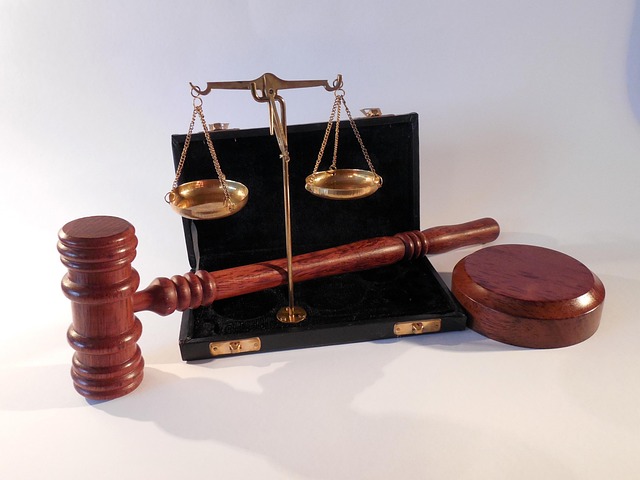The RF Securities Industry faces complex legal challenges, with Environmental Compliance as a key focus. Businesses require robust strategies to navigate ecological regulations, permitting processes, and potential legal disputes, ensuring sustainable growth and avoiding penalties while fostering trust with regulatory bodies. Proactive measures like environmental programs and employee training are crucial for overcoming legal hurdles.
“The RF Securities industry faces a complex landscape of regulation, particularly regarding environmental compliance. This article explores the intricate aspects of RF securities regulation, offering insights into three key areas: understanding the regulatory framework, navigating environmental impact assessments, and managing legal responsibilities.
With a focus on environmental compliance, we delve into the challenges businesses encounter, providing strategies to ensure adherence to legal standards while mitigating potential risks.”
- Understanding RF Securities Regulation Framework
- Environmental Impact Assessments and Permitting
- Navigating Legal Responsibilities and Compliance Strategies
Understanding RF Securities Regulation Framework

The RF Securities Industry Regulation is a complex web that requires a deep understanding to navigate successfully. At its core, this framework is designed to ensure fairness, transparency, and protection for investors in the securities market. Environmental Compliance stands as a significant pillar within this regulation, demanding businesses adhere to stringent standards to mitigate ecological impact. This involves careful consideration of various legal challenges, including permits, waste management, and emissions control, which can significantly affect operational costs and strategic planning.
Beyond environmental concerns, the RF Securities industry faces intricate legal challenges stemming from its dynamic nature. High-stakes cases often arise from regulatory missteps or disputes over financial reporting, with consequences that can impact not just businesses but also the broader philanthropic and political communities. A robust general criminal defense strategy is therefore crucial for entities to safeguard against potential risks, especially as market transparency and accountability continue to evolve in response to changing legal landscapes.
Environmental Impact Assessments and Permitting

In the realm of RF (Radio Frequency) securities industry regulation, Environmental Impact Assessments (EIAs) and permitting play a crucial role in ensuring environmental compliance. As businesses venture into new projects, from construction to operation, they must navigate complex legal challenges related to environmental protection. These assessments are essential tools for understanding and mitigating potential ecological impacts associated with RF infrastructure deployment. By evaluating the project’s effects on air quality, water resources, wildlife habitats, and other environmental aspects, EIAs help stakeholders make informed decisions. This process is particularly vital in high-stakes cases where regulatory bodies scrutinize every detail, ensuring that the respective business meets all legal requirements.
Moreover, permitting agencies serve as gatekeepers, reviewing EIA reports and issuing necessary permissions for project commencement. Navigating this process involves understanding local, state, and federal regulations, which can be a significant challenge for businesses unfamiliar with environmental compliance. All stages of the investigative and enforcement process are closely monitored, especially in high-profile cases, to safeguard the environment and protect public interests. Effective management of these requirements is not just about avoiding penalties; it’s also about fostering sustainable growth within the RF securities industry.
Navigating Legal Responsibilities and Compliance Strategies

Navigating complex legal responsibilities is a critical aspect of the RF Securities Industry. Businesses operating within this sector face unique Environmental Compliance Legal Challenges, demanding meticulous attention to detail and robust compliance strategies. The ever-evolving regulatory landscape necessitates a deep understanding of applicable laws and their potential impact on respective businesses.
Mastering these challenges requires proactive measures. Companies must implement comprehensive environmental programs, ensuring adherence to regulations governing air quality, water usage, waste management, and more. Achieving extraordinary results in navigating legal complexities often lies in fostering a culture of compliance, regular training for employees, and staying informed about regulatory updates. This proactive approach not only mitigates risks but also fosters trust between businesses and regulatory bodies, leading to a complete dismissal of all charges rather than just temporary reprieves.
The regulation of the RF securities industry is a multifaceted landscape that demands comprehensive understanding. From the foundational framework to intricate legal responsibilities, businesses must navigate complex environmental compliance challenges. As the industry evolves, staying abreast of regulatory changes and adopting robust compliance strategies is paramount to mitigate legal risks. By addressing environmental impact assessments and permits, along with strategic legal management, companies can ensure sustainable growth while respecting regulatory boundaries, ultimately fostering a resilient and responsible RF securities sector.






